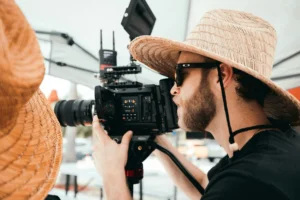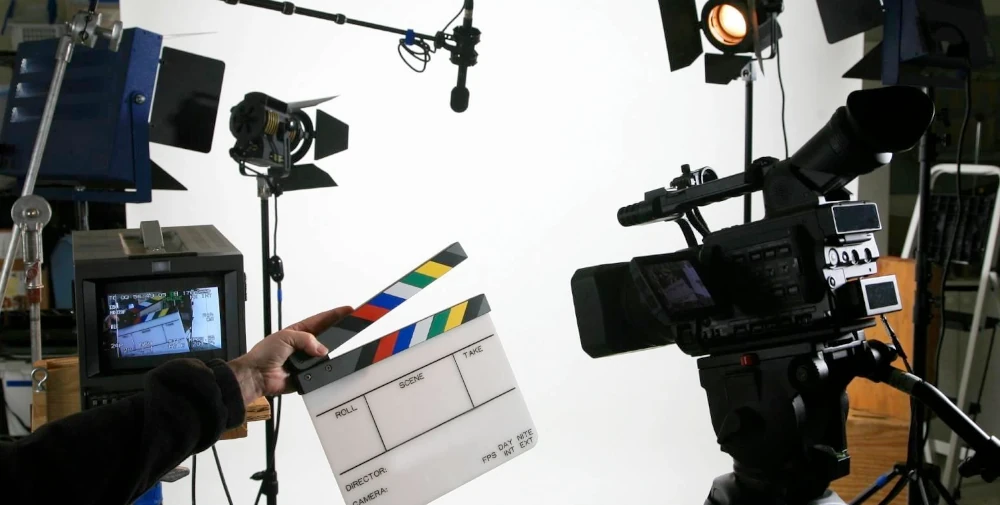
How to start a career in Filmmaking?
Action, Lights, Camera: Many aspirations of huge success in the film business have been motivated by these three words. Start a career in filmmaking might seem daunting, regardless of your interests—directing, screenplay, or excitement about becoming a cinematographer. Still, converting your passion into a career is very feasible with the correct attitude, plan, and commitment.
We will go through methodically how to launch a career in filmmaking in this blog, stress key tools and abilities, and address five often-asked questions to help you on your road map.
First step: grasp the state of the film business
One should know what the film business involves before jumping in. It goes beyond just direction or performance. The realm of filmmaking comprises many positions:
- Director
- producer
- screenwriter
- camera operator
- editor
- production designer
- sound designer
- film critic
Every one of these positions calls for diverse abilities, so you should investigate which one fits your interests and qualities most. You could learn a lot by reading business blogs, seeing behind-the-scenes documentaries, and going to movie events.
Second Step: Educate Yourself
Although formal education is not absolutely required, it may provide a solid theoretical, historical, and practical basis. Think about the following learn filmmaking routes:
Institutions, including NYU, USC, and the London Film School, provide regimented programs with industry ties.
Renowned filmmakers’ courses are available on sites including MasterClass, Coursera, and Skillshare.
Third step: start small and make short films.
Starting a film does not require a large expenditure. Start making short videos with any tools at hand—even a smartphone will work artistically. Pay especially attention to editing, lighting, framing, and narrative. Send your work to short film events or post it online for comments.
This phase is very important as it enables you to get better at filmmaking and learn from errors.
- Create a portfolio
- Get Confident
- Learn from errors
- Grasp the procedure
For ultra-short material, popular venues to highlight your work include YouTube, Vimeo, and even Instagram Reels or TikHub.
Fourth Step: Network and Work Alongside
Filmmaking is group art. Around you, surround other creatives—writers, performers, editors, sound designers. Join film groups, go to festivals, and engage in 48-hour film challenges.
Networking benefits you:
Look for possible partners, explore work prospects, and get comments and exposure.
For networking with business leaders, social media sites such as LinkedIn, Instagram, and Twitter—now X—also come in handy.
Fifth Step: Intern and Work on Motion Pictures Sets
Working on film sets as an intern or production assistant (PA) is one of the greatest ways to enter the business. You will network, see experts in action, and get first-hand experience.
Even unpaid events could provide opportunities. Act professionally, on time, and pro-actively. Many filmmakers find their initial break this way.
Sixth Step: Create Your Portfolio
Strong portfolios highlight your vision and abilities. It might incorporate:
- Short films
- trails
- storyboards
- scripts
- photography
Show your work on a website or using Behance or Vimeo. Your portfolio needs to show your development, adaptability, and originality.
Seventh step: market and specialize yourself
After investigating many roles, hone the one that seems perfect. Then, give your brand development top priority.
Create a filmmaker’s reel; keep up a strong internet presence; Prepare a strong bio and CV; apply to contests and events. Look for work via sites such as Mandy, Staff Me Up, and Stage 32.
Especially in a field that is very competitive, constantly marketing oneself is really vital.

5 Common Questions Regarding Pursues in Filmmaking
1. Do I have to attend film school in order to start filming?
Not specifically. Many great directors are self-taught, even if film school offers structure, mentoring, and networking. Your capacity to create engaging tales and execute them deftly counts most. One useful but not necessary route is film school.
2. How much does it cost to create a short film?
A short film could run from \$0 to hundreds of dollars. If you’re just starting out, concentrate on a low-budget narrative. Make do-it-yourself props, use free sites, and call on volunteers. You may also help raise money using crowdsourcing sites like Indiegogo or Kickstarter.
3. What tools ought a novice filmmaker to have?
Start with the foundations:
- Camera: A DSLR or even a smartphone with a decent camera.
- External microphones increase the quality of sound.
- Tripod: For steady images.
- Natural light or cheap LED panels are lighting.
- Either Adobe Premiere Pro, DaVinci Resolve, or iMovie for editing.
Don’t allow a lack of tools to stop you; imagination beats tools.
4. How can I locate somebody I might work with?
**Response:** Join Facebook film groups, Stage 32, or r/filmmakers on Reddit. Go to neighborhood events, seminars, or open casting calls. Finding partners and assembling a team most successfully via networking is also related to this.
5. How long does one need to develop into a competent director?
The schedule is not set in stone. Some succeed in a few years; others require decades. Your best friends are enthusiasm, patience, and tenacity.
Conclusion
Filmmaking is a calling, not just a job. Although the path might be lengthy and demanding, the incomparable benefit of witnessing your idea come to life. Start where you are, take advantage of your resource s, and keep growing every step along.
Now is the greatest moment to start if you have ever dreamt of sharing tes that move, inspire, or entertain. e tools are more easily available than ever. l you need is a creative spark, a ready learning attitude, and the resolve to stay on.

